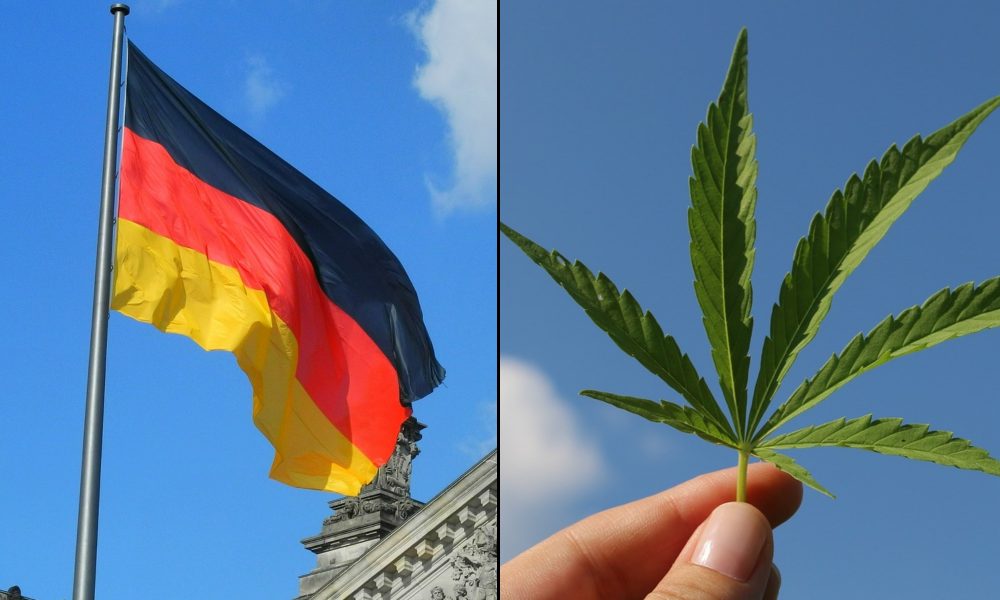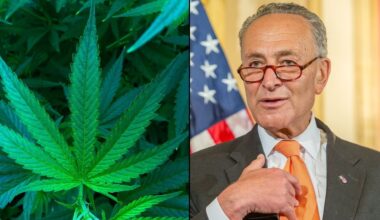German officials are taking the first steps to legalize marijuana nationwide this week, kicking off a hearing series that will help inform legislation to end prohibition in the country.
Leaders of the coalition government said last year that they had reached an agreement to end cannabis prohibition and enact regulations for a legal industry, and they previewed certain details of that plan earlier this year. Now the wheels are in motion to craft the specifics of actual legalization legislation, with officials announcing on Monday that they will be holding five hearings featuring international experts to discuss various aspects and implications of the policy change.
Commissioner for Addiction and Drug Issues Burkhard Blienert said in a press release on Monday that “the time has come” to move forward, according to a translation.
“We are starting the preparatory phase of legislation,” he said. “Being able to finally announce this is a special, gratifying moment for me personally. Like many others, I have been working for years to ensure that we in Germany finally stop criminalizing cannabis users and start a modern and health-oriented cannabis policy.”
Insgesamt werden sich mehr als 200 der führenden Suchtmediziner*innen, Jurist*innen, Wirtschaftsvertreter*Innen sowie Verbandsvertreter*innen aus ganz Deutschland und weltweit austauschen. Mehr Infos: https://t.co/Uwyn6t1EWm
— Sucht- und Drogenbeauftragter der Bundesregierung (@BdB_SD_Blienert) June 13, 2022
The news release says that the five hearings will address the following subjects: 1) health and consumer protection, 2) youth prevention and protection, 3) supply chains and economic and ecological considerations, 4) penalties and licensing regulations and 5) international experiences.
The first hearing will take place on Tuesday.
Blienert stressed that “we want to protect children and young people in particular from possible risks.”
An official FAQ about the government’s legalization plan said that “the specialist knowledge required for the implementation of the project is to be bundled and supplemented by the experience of other countries,” and also that the process is “about creating a space in which objections and reservations can be openly addressed and discussed.”
It also addresses other key components of legalization legislation that are still in the works, stating that at this point, it’s not certain whether home cultivation, expungements or traffic controls will be implemented as part of the end of criminalization.
Plans to enact legalization were partly delayed by the coronavirus pandemic, but officials did provide a preview in January, saying that they intend to craft regulations to allow adults to purchase and possess marijuana and that cannabis would be taxed.
As it stands, personal possession of marijuana is decriminalized in Germany, and there is a medical cannabis program in place.
Beyond cannabis legalization, the traffic light coalition said this year that it will also work to advance other drug policy reforms such as establishing drug-checking services where people can have illicit drugs tested for contaminants and other harmful substances without fear of facing criminal sanctions.
When they initially announced the legalization plan, the leaders noted that the legislation will also restrict advertising for marijuana, alcohol and tobacco products.
While the lawmakers emphasized that the objective of marijuana legalization is not to boost tax revenue for the country, FDP said in its election manifesto that taxing cannabis like cigarettes could generate €1 billion annually.
This reform has been a long time coming in Germany. It was 2017 when members of the Christian Democratic Union and its ally the Christian Social Union entered into talks with Free Democrats and Greens about advancing legalization.
Police unions in Germany have come out against plans to legalize marijuana.
In neighboring Luxembourg, the ministers of justice and homeland security last year unveiled a legalization proposal, which will still require a vote in the Parliament but is expected to pass. For now, the country is focusing on legalization within a home setting.
Malta beat both Germany and Luxembourg to the punch late last year, becoming the first country in Europe to legalize adult-use cannabis.
According to an international poll released this year, 50 percent of Germans support legalizing marijuana.
Medical Disclaimer:
The information provided in these blog posts is intended for general informational and educational purposes only. It is not a substitute for professional medical advice, diagnosis, or treatment. Always seek the advice of your physician or other qualified healthcare provider with any questions you may have regarding a medical condition. The use of any information provided in these blog posts is solely at your own risk. The authors and the website do not recommend or endorse any specific products, treatments, or procedures mentioned. Reliance on any information in these blog posts is solely at your own discretion.







